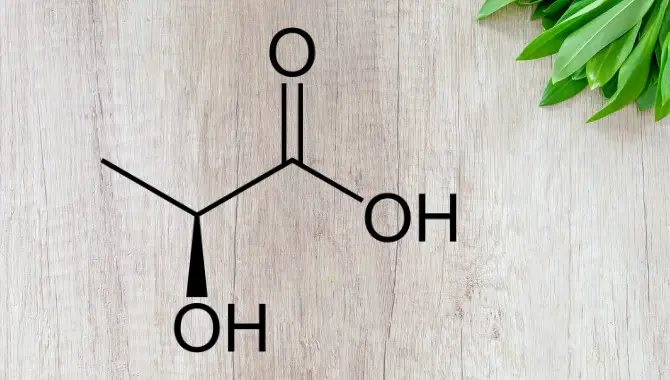After becoming vegan, I found it relatively simple to avoid obvious animal products, such as meat, eggs, cheese and milk, but there are certain food additives or ingredients that are significantly less clear. Lactic acid is an example of an ingredient that causes a lot of confusion amongst vegans, because the word itself sounds similar to ‘lactose’ and it is found in a number of dairy products, including yogurts and cottage cheese. As a result, many vegans are naturally wary of the ingredient and unsure about whether or not they are able to consume the products it is found within.
So is lactic acid vegan? As a basic rule, it is fine for vegans to consume. Lactic acid forms during bacterial fermentation of carbohydrates, meaning it can occur naturally even in vegan foods. When used as a food additive, it is generally derived from plant-based sources and is perfectly safe.
With that being said, lactic acid can technically be sourced from both animal and non-animal sources, so it is worth taking the time to scrutinize your food carefully. Confusion about how acceptable lactic acid is within the vegan community is understandable too because lactic acid can be found within muscle tissue, but this is not a source for commercial lactic acid production. In this article, I will explain lactic acid in more detail and attempt to clear up any lingering doubts you may have about whether or not it is acceptable for vegans to consume.
What is Lactic Acid and Can Vegans Eat It?
Lactic acid is an organic compound, which can take either liquid or solid forms. It is a product of bacterial fermentation of carbohydrates and occurs naturally, although it can also be created synthetically. What this means is that lactic acid is created when certain foods ferment. In addition to naturally occurring in this way, lactic acid is also manufactured as a food additive; often functioning as a preservative or flavoring. It is also produced within the human body, as well as the bodies of other living creatures, and this occurs as a result of glucose being broken down during physical exertion.
The name ‘lactic acid’ causes some confusion for vegans, due to its similarity to ‘lactose’. This concern is worsened by the fact that the “lac” prefix comes from the Latin word for milk. Moreover, lactic acid is sometimes referred to as milk acid. However, all of this can be explained by the fact that lactic acid was first discovered in milk by Carl Wilhelm Scheele back in the 18th century. Despite this, lactic acid can be sourced from either animal or non-animal sources, with common non-animal sources including beet sugar, cane sugar, potatoes, and other vegetables.
At this point, it is important to stress that companies producing lactic acid almost always use vegetable sources, rather than animal sources. Therefore, if the food would otherwise be vegan, but you are worried about the inclusion of lactic acid, it is almost certainly perfectly safe for vegans to eat. When used as a food additive, lactic acid is sometimes referred to by the E number E270. Again, if you see this list, it is almost always vegan-friendly, in of itself.
For manufacturers, using a vegetable base to produce lactic acid is significantly cheaper than using an animal product, which is fortunate for vegans. Nevertheless, it is hypothetically possible for lactic acid to be sourced from animal products and it is not completely unheard of, so a certain amount of care is required. For instance, checking the label for any reference to the lactic acid being derived from milk, or from an animal source is a fairly sensible precaution.
As lactic acid can be formed through the fermentation of both animal or non-animal products, its naturally-occurring presence within a food or drink is not indicative of whether or not that product is vegan-friendly. To provide an example, lactic acid can be found in milk, cheese and yogurt, which are not suitable for vegans. However, it can also be found in a number of types of bread, beer, and wine, most of which are suitable for vegans.
While vegans do not need to actively avoid lactic acid, it is important to steer clear of the similarly-named lactose. This ingredient is a kind of sugar, which is found within the milk of cows and other animals. If you do see lactose referenced as an ingredient, the product can immediately be disregarded, as it is definitely not suitable for vegans to consume.
Are Lactic Acid Powder Products Vegan?
Aside from seeing lactic acid as a food ingredient in pre-made foods, it can also be sourced in powder form and this is typically marketed as a food additive. In this context, it can be added to drinks, in order to provide a sour taste, or used within the production of non-dairy cheeses, which is why it can be of particular use to vegans. However, given that lactic acid can technically be produced from animal or vegetable sources, it is sensible to be cautious.
The good news is that the vast majority of lactic acid powder is perfectly vegan-friendly and is usually sourced from either cane sugar or beet sugar. In researching this article, I did not come across a single example of non-vegan lactic acid powder. Best of all, most lactic acid powder products are specifically marketed as being “vegan-friendly” or “suitable for vegans”, so you will not struggle to find an acceptable powder product. Certainly, vegan-friendly lactic acid is abundant in Europe, the United States, Canada, Australia and most parts of Asia.
Again, vegetable sources tend to be cheaper than animal sources, so it is unlikely you will run into a lactic acid powder that is not vegan-friendly, although it is theoretically possible. The most likely case here is that the lactic acid would be sourced from fermented milk of some kind. For this reason, it is best to double-check the label. If you are left in any doubt, it may be worth looking for one of the alternatives that clearly states it is suitable for vegans.
If you want to know about a specific product and the label is not clear, you might need to ask the brand directly. Check the company website for contact information, or reach out to them on Twitter, Facebook or other social media platforms.
What About Lactic Acid Used in Cosmetics?
Lactic acid is nowadays often used in cosmetics, where it has a range of different functions. For instance, at certain strengths, it can be used as a topical moisturizing cream, or as a skin exfoliating product. During my research for this article, I did encounter one example of cosmetic lactic acid with a label that clearly stated the acid was produced via the fermentation of milk. This is rare, but it is not totally unknown, so caution is recommended.
Depending on your reasoning on why to become vegan in the first place, this may or may not be a problem. As a general rule, vegans avoid animal products and products that contribute to animal suffering, whether they are a food product or not. If this is the case, you will want to avoid lactic acid made from milk fermentation or any other animal sources. To do this, you will need to scrutinize labels and try to stick to products labeled as vegan-friendly.
With that being said, it is important to understand that an overwhelming majority of cosmetic lactic acid will still be perfectly fine for vegans to buy and most of the lactic acid will be sourced from sugar or potato starch.
A bigger issue with cosmetics is whether or not they are tested on animals and this will vary from brand to brand. There have been moves within the industry to eradicate animal testing, but sadly it still occurs. You may also need to make a personal decision about whether to boycott brands as a whole if they participate in animal testing, or whether you are only going to boycott specific products that are animal tested. Vegans have different views on this.
If you are in any doubt about whether or not a product is suitable for vegans, try asking them directly.
Lactic Acid and PETA’s Animal Ingredients List
Finally, many new vegans turn to PETA (People for the Ethical Treatment of Animals) for advice on avoiding products that contribute to animal suffering. One of the most widely-utilized resources here is the organization’s Animal-Derived Ingredients List. If you have examined the list closely, you will have noticed that lactic acid is featured, but in the most recent list, it clearly states that lactic acid is “typically derived from plants”.
Nonetheless, if you are accessing an older version of the PETA list, the description of lactic acid may cause alarm bells to go off, as this clarification was not initially present. Indeed, previously, the entry began with: “Lactic Acid: Found in blood and muscle tissue. Also in sour milk.” Technically, this is not inaccurate, but it is somewhat misleading, which is why the most recent list has the clarification that lactic acid is usually sourced from plants.
For the sake of clarity, lactic acid is found in blood and muscle tissue, but it is also produced during the fermentation of any carbohydrate. Its presence in blood and muscle tissue is largely irrelevant to its natural presence within certain foods or its use as a food additive. Lactic acid sourced from blood or muscle tissue is simply not commercially viable.
Again, to be absolutely clear, commercially produced lactic acid is almost always sourced from vegetables. This is the cheapest, safest and most reliable way to create lactic acid and sourcing it from animal products instead has no obvious benefit for manufacturers. While a level of basic awareness is useful and advisable, vegans do not need to be overly concerned with this issue. A simple check of the ingredients list and the allergy information is perfectly sufficient.
Welcome to VeganClue - My name is Robert Van De Ville and together with my team we spent hundreds of hours researching the most relevant topics for Vegans and non yet Vegans. Are you looking for more information about Veganism, animal welfare, diet, health, and environmental benefits of the Vegan lifestyle? You are in the right place! Enjoy the site.

